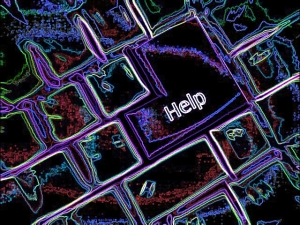
“Sounds like you need to start selling your petaFLOPS, mate.”
That is what Dave had said back in the good old days when they drunk in the Queen’s Head. At the time, Geoff had lost his job as an Accountant for one of the big 5 firms and was struggling to adjust to a life of leisure. He’d find himself staring into space for hours at a time, unsure of what to put his brain into next. Once upon a time, a GP might have prescribed him some ‘happy’ pills, but diagnosis of depression and stress was a thing of the past: the symptoms had long been recategorised as ‘misused capacity in the mind’.
Dave’s suggestion for money-making wasn’t unusual, and the papers said the scheme could even become prevalent in years to come. With six pints swimming around his system, Geoff imagined he might be ahead of the curve; one of the trendsetters that would mark a new and enterprising use for the human brain. And, once the hangover of the next morning had subsided and he swore never to drink again, it still seemed like the only logical thing to do.
Geoff signed up to have a tiny sub-dermal chip installed in his head that connected him to the worldwide network. It was a simple procedure, done under local anaesthetic, and had a surprisingly fast recovery time: in just two days he was ready to come online. He popped the prescribed pill under his tongue, sat back in his La-z-Boy and selected ‘join game’ on his console.
And that is how it was, 9-5, Tuesdays through Saturdays. As per the deal, he would do one of two things: play a match-3 game or watch sitcom re-runs on TV. The former gave him enough of a dopamine hit to keep him awake and powered up; the latter allowed him to enjoy taking a passive role while still earning a healthy income. Repetitive, predictable tasks that used only a small proportion of potential brain function were essential, so that the remaining neurones could be isolated by the drug and fired over the network to perform a range of data-crunching tasks.
Any number of corporations could bid for the use of human processors, which were sold in petaFLOPS. For them, the efficiency in terms of energy usage, space and cost was unparalleled. For Geoff, it was a dream form of employment. He bought Dave’s drinks all night whenever his generous pay packet came in, to thank him for his valuable suggestion.
“Honestly mate, you can’t tell anything’s going on back there,” he told him one day. “You just sit making rows of colourful sweets all day without a care in the world, and you get paid for it. And another thing: you feel like you’ve done a day’s work. I feel as fulfilled as I ever did being a bean-counter.”
Dave swigged his drink and wiped away froth from his beard. “Aren’t you ever tempted to – you know, take a peek behind the curtain as it were?”
“Ah it’s against the rules.”
“Not even once?”
“To tell the truth, I wouldn’t even know how. Besides, I’m onto a good thing here, why would I risk throwing it away?”
But a seed had been planted, and come the next Tuesday morning, Geoff was wondering. What exactly are they using my brain for? By Friday, he had decided to try and find out. He split one of the little pills in two, and put just half under his tongue. He spent the morning building up his puzzle game score as usual, but after lunch during Only Fools and Horses, columns of moving numbers began to overlay his vision. They made no sense at first; they were just vaguely hypnotic. He was elated that his brain could be used for feats he did not understand. To be a cog in a machine that would better the world was enough for him, and he swore to go back to taking the full pill straight away. But then he began to notice patterns in the numbers: it was a code, and it was recording transactions. Geoff grabbed a pen and paper and started scribbling down what he could see.
On Saturday, his access to the game was prohibited: the agency had locked him out. A message appeared on the screen: Security violation detected. Await instructions. Geoff’s mind worked overtime thinking about what that could mean. It had to be something to do with what happened the day before. Did they think he knew something?
“I swear,” he said aloud, “I saw nothing but a series of random numbers.”
“Tut tut Mr O’Brien,” said a voice from behind him. “We can’t have our operators breaking the rules. Our confidentiality has been breached. You must be disconnected now.”
A big hand grabbed his shoulder and spun him around. Another pushed his head back against the chair, and a third sliced into him with a scalpel, removing the chip amidst Geoff’s screams.
“I swear!” He cried out in desperation,”I swear I know nothing!”
One of the hands held up the notebook he had used to scribble down the transactions.
“But I don’t know what it means, it’s just a load of numbers!”
“It’s all up here,” the man tapped his temple. “And now we have to remove it.”
*****
For more dark imaginings of our future with tech, and fictional explorations of ontology, check out my collection of very short stories: Fragments of Perception.





